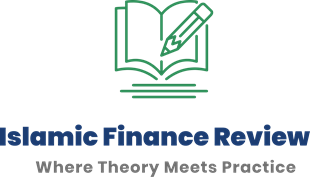
Digital Revival of Sunnah: The Truth About Islamic Crowdfunding & P2P Lending
- Post by: wp-islamicfinancereviewcouk
- May 25, 2025
- No Comment
Imagine a world where people help one another financially—not through interest-based debt—but through partnerships, compassion, and shared purpose. A world where money empowers without enslaving, where investment builds without exploiting. This isn’t a utopian dream. It’s the original Islamic financial model, now being reimagined through crowdfunding and peer-to-peer lending (P2P) technologies.
Welcome to Part 3 of our series, where we explore how Shariah-compliant crowdfunding and P2P lending platforms are transforming the global financial landscape—reviving Prophetic economic values for a digital age.
📌 Understanding Islamic Crowdfunding: Faith Meets FinTech
Crowdfunding allows people to raise small amounts of money from a large number of contributors. When infused with Islamic principles, this tool becomes a powerful channel for halal wealth redistribution and community empowerment.
In Islamic finance, crowdfunding draws from classical contracts such as:
- Mudarabah (profit-sharing)
- Musharakah (joint ventures)
- Qard al-Hasan (benevolent loans)
- Waqf (charitable endowment for public welfare)
🕋 “Help one another in righteousness and piety…”
— Surah Al-Ma’idah (5:2)
Through these structures, Islamic crowdfunding supports not only business growth but also social causes, emergency relief, education, and ethical entrepreneurship—all without violating core Shariah values.
🤔 How Is It Different from Conventional Crowdfunding?
Islamic crowdfunding prioritizes ethical use of funds, interest-free structures, and full transparency. Here’s a quick comparison:
| Feature | Islamic Crowdfunding | Conventional Crowdfunding |
|---|---|---|
| Interest Involvement | ❌ No | ✅ Often involved |
| Sector Restrictions | ✅ Shariah-Compliant Only | ❌ No religious filter |
| Contracts Used | ✅ Mudarabah, Waqf, Qard | ❌ Often ambiguous |
| Zakat/Sadaqah Integration | ✅ Allowed | ❌ Not applicable |
| Shariah Review Required | ✅ Yes | ❌ Rarely |
Islamic platforms are typically reviewed by a Shariah Supervisory Board (SSB) to ensure every project aligns with the Maqasid al-Shariah—the objectives of Islamic law, including social justice and wealth preservation.
💸 What About Islamic Peer-to-Peer Lending?
While conventional P2P platforms connect borrowers and lenders often with interest-bearing loans, Islamic P2P lending provides an alternative that avoids riba entirely.
These platforms use:
- Qard al-Hasan: a benevolent, interest-free loan given purely for the sake of Allah
- Or they structure contracts based on Mudarabah and Musharakah, offering profit-sharing instead of fixed returns
💰 “If you give a loan to Allah, a goodly loan, He will multiply it for you and forgive you.”
— Surah At-Taghabun (64:17)
🌍 Digital Platforms Leading the Change
A new generation of Shariah-compliant fintech platforms is making Islamic crowdfunding and P2P lending accessible worldwide:
🔗 Leading Islamic Crowdfunding Platforms:
- Ethis – Real estate and SME financing in Malaysia, Indonesia, and beyond
- LaunchGood – Global Muslim community funding social causes
- Nusantara Ventures – Malaysian platform focused on equity investments in halal businesses
- GlobalSadaqah – Focused on zakat and impact funding in line with Shariah
These platforms embody the Prophetic model of community solidarity, where money flows from those who have to those who need—without exploitation.
🔎 Real-World Impact: Rebuilding Trust and Equity
Islamic crowdfunding has funded everything from:
- Halal startups in tech, fashion, and agriculture
- Emergency appeals for war-affected regions
- Waqf-based schools and mosques
- Women-led businesses in rural and underdeveloped areas
This bottom-up financing system is reviving traditional Islamic values using modern tools—rebuilding broken economies with faith, fairness, and accountability.
📈 The Global Growth of Islamic Crowdfunding
According to the Global Islamic Fintech Report (DinarStandard, 2022), the Islamic crowdfunding sector is expected to reach $5 billion by 2027—driven by:
- Increasing demand for ethical finance
- Diaspora Muslims seeking trusted platforms to give back
- Young entrepreneurs turning to interest-free capital
- Integration of crowdfunding with Waqf and Zakat
🌿 “The believers, in their mutual kindness, compassion and sympathy, are like one body…”
— Hadith, Sahih Muslim
✅ Key Benefits of Islamic Crowdfunding & P2P
🟢 For Entrepreneurs:
- Access to riba-free funding
- Build ethical, community-backed businesses
- Avoid venture capital that conflicts with Islamic ethics
🟢 For Donors/Investors:
- Invest in impactful, halal projects
- Earn spiritual reward (Sadaqah Jariyah or Qard al-Hasan)
- Share in profits through Mudarabah (where applicable)
🟢 For Communities:
- Foster financial inclusion
- Create social safety nets via collective giving
- Fund education, health, and housing solutions
🚧 Challenges to Overcome
While Islamic crowdfunding is promising, it faces key hurdles:
- Lack of standardized Shariah criteria across countries
- Regulatory uncertainty in non-Muslim jurisdictions
- Low awareness among target communities
- Risk of fraud or misuse without proper governance
Strong transparency, Shariah oversight, and community education are essential for the sector’s integrity and growth.
🔑 Aligned with Islamic Values and Global Goals
Islamic crowdfunding supports:
- Preservation of wealth and dignity (Maqasid al-Shariah)
- Global SDGs, including:
- SDG 1: No Poverty
- SDG 8: Decent Work & Economic Growth
- SDG 10: Reduced Inequality
It offers a blueprint for ethical finance—one that transcends borders, faiths, and financial barriers.
🧭 Conclusion: The Sunnah Reimagined in the Digital Age
Islamic crowdfunding and P2P lending represent not just a technological advancement—but a spiritual revival. They embody the Qur’anic call for justice, compassion, and mutual support.
These tools are bridging faith with function, creating a halal path for Muslims to give, invest, borrow, and build—without compromising values.
🕊 “The upper hand is better than the lower hand.” — Sahih Bukhari
📚 Read More in the Series:
- Part 1: What Is Islamic FinTech? A Halal Revolution in Digital Finance
- Part 2: Islamic Digital Banks and Financial Inclusion
📢 Join the Movement
💌 Subscribe to our newsletter
📲 Share this article using hashtags like #HalalFinance #IslamicCrowdfunding #FaithBasedFinance
🌐 Follow us for the next part in our Revolutionizing Islamic Finance series
